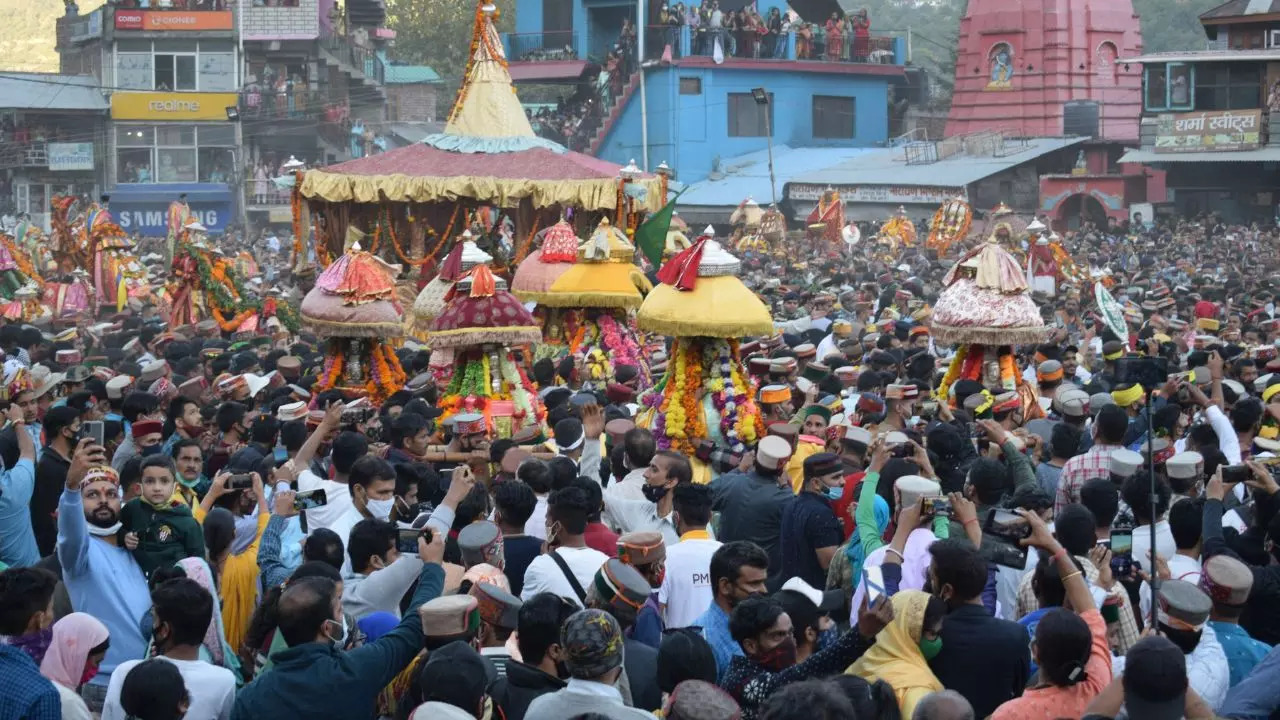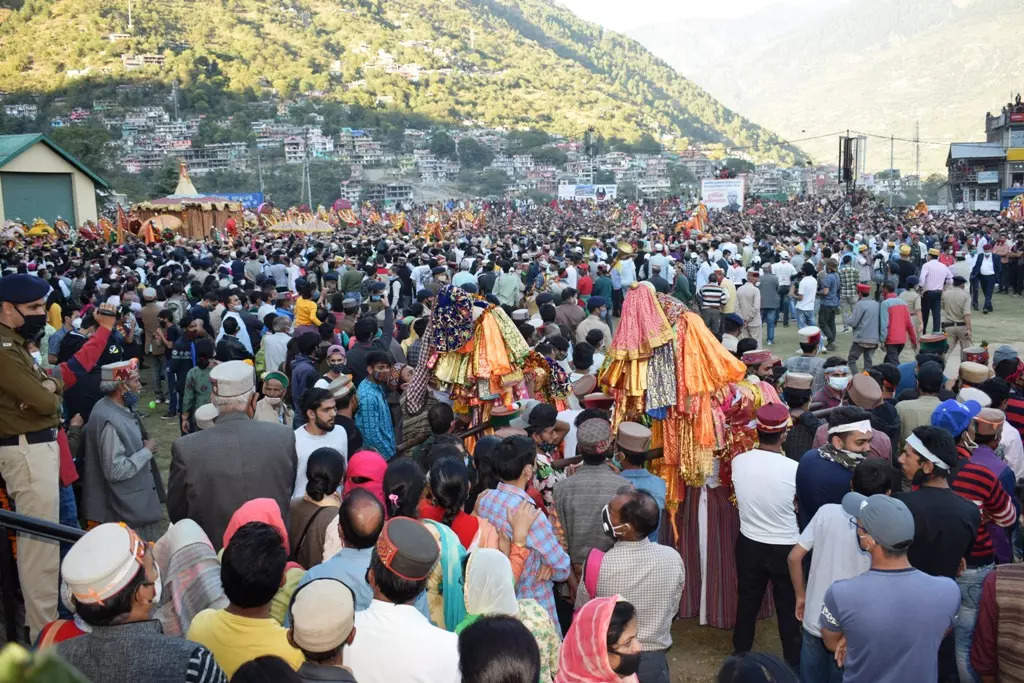
Dussehra Celebrations In Himachal Pradesh Are 372 Years Old!
From Navratri to Durga Puja, every region has its distinct and varied ways of honouring the divine, particularly during Dussehra. What sets the Kullu Valley’s Dussehra festivities apart is its focus on worshipping Lord Ram instead of a goddess. With a spectacular rath yatra, vibrant mela, and lively dances, Kullu Dussehra, also called International Kullu Dussehra Festival, is a true celebration of the region’s heritage and venerates Lord Raghunath, the principal deity of Kullu Valley.

History of Kullu Dussehra
The origins of Kullu Dussehra date back to 1637 during the reign of Raja Jagat Singh. According to legend, the king learned of a brahmin named Durga Dutt who possessed a bowl of pearls. When the king sent his men to retrieve the pearls, they mistreated Dutt, who vowed to deliver the pearls only when the king returned to the village. Upon his arrival, Dutt locked himself and his family inside their home and set it ablaze, cursing the king for his greed.
Haunted by the spirit of the deceased family, Raja Jagat Singh began to experience disturbing visions, seeing worms instead of rice and blood in his water tumbler. As word of his declining health spread, a bairagi known as Krishan Dutt (Pahari Baba) advised the king that he needed the blessings of Lord Ram.

In 1651, the king obtained an idol of Lord Ram from Ayodhya and established it in the Raghunathji temple in Sultanpur Kullu. Special priests were summoned from Ayodhya to perform the installation rituals, and their descendants continue to maintain these customs. The king, whose recovery fueled his devotion, eventually abdicated his throne in favour of Raghunathji, becoming his ‘Chharibardar’. He invited all the local ‘kardars’ of various deities in the state to join the celebrations of Vijay Dashmi, marking the beginning of the festivities in Himachal Pradesh centuries ago.
What To Expect At Kullu Dussehra
Kullu Dussehra features a week-long celebration, starting on the day of Vijayadashmi, and culminating a week later at Dhalpur grounds, with hundreds of deities adorned in elaborate fineries. Notably, the celebrations do not include Ramlila enactments or symbolise the triumph of good over evil.

Devotees from Ujhi, Lagg, Maharaja, Rupi, Banjar, Sainj, and the Outer Saraj area converge on Kullu, carrying their local deities in a grand procession that fills the streets. Various deities (over 300, in fact) are housed in camps throughout the festive week. On the final morning, all the devatas emerge from their tents and, accompanied by their musicians, march towards the Raghunathji temple to offer their obeisances. A Rath Yatra then begins, leading the deity’s idol to Dhalpur grounds. The procession is accompanied by traditional music, including the beats of the dhol (drum) and the sounds of folk instruments, creating a festive ambiance that resonates with the local culture. Local artisans and craftsmen also take part in the festivities, displaying their handmade products, including woollen garments, handicrafts, and traditional jewellery.
Get Latest News Live on Times Now along with Breaking News and Top Headlines from Destinations, Travel and around the world.